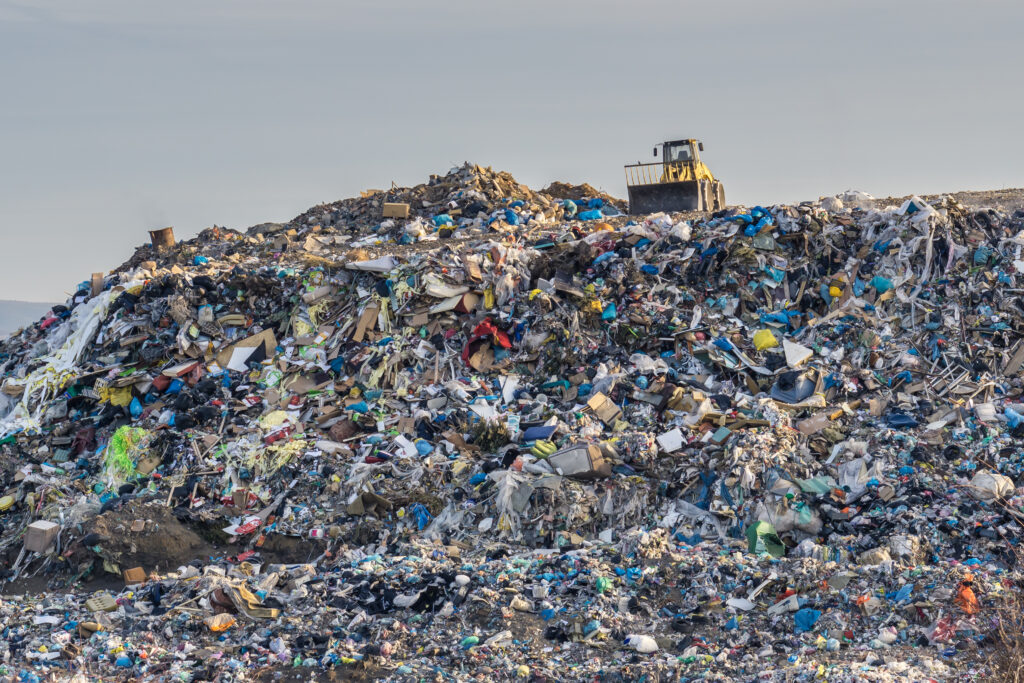The survey was carried out in 2020 and 2021 by the Environment Agency to “develop awareness of the nature and scale of waste crime” and the agency invited members of the waste industry, service providers and landowners/farmers were invited to anonymously complete the survey.
The results, released this morning (6 July), said around “18% of all waste in England may be illegally managed” which is approximately 34 million tonnes of waste and highlight the correlation between the cost-of-living crisis and the increase in waste crime.
Waste crime encompasses various unlawful practices, such as the illegal disposal, incineration, unauthorised transportation, misrepresentation of waste, and the operation of illicit waste sites.
According to industry research, waste crime results in an annual cost of £1 billion to the English economy. This cost arises from tax evasion, environmental and social damage, and the negative impact on businesses.
Strict Penalties
Respondents in the survey strongly believe that waste crime should be met with strict, stringent sanctions, including court-imposed penalties, visible enforcement activities, disruptive measures, and criminal consequences, to deter people from committing waste crimes.
During the financial year 2021/22, the Environmental Agency took legal action against 94 individuals and companies involved in waste crime offenses, leading to fines totalling more than £6.2 million.
Steve Molyneux, the Environmental Agency’s strategic lead on waste regulation, said: “Waste criminals put us all at risk every time they break the law. Their toxic crimes cause widespread and significant harm to people, places, and the economy. The Environmental Agency is facing well-resourced, highly organised criminals whose crimes stretch beyond the waste sector to include human trafficking, drugs, and money laundering. We know crime in the waste sector is rife and this survey provides us with the evidence we need to help us stay one step ahead of the criminal gangs.”
Effectiveness
A significant number of respondents expressed a lack of confidence in the Environment Agency’s effectiveness in deterring waste crime. Concerns revolved around what they perceived as inadequate reporting mechanisms and unsatisfactory responses from the agency regarding enforcement actions. 48% of the respondents disagreed with the notion that the Environment Agency possesses sufficient resources to effectively regulate waste.
Furthermore, according to the respondents’ estimations, a mere 24% of waste crime incidents are reported to the Environment Agency. These findings highlight a lack of trust and perceived shortcomings in the agency’s ability to tackle waste crime.
However, the Environment Agency has said since 2021 they have implemented a new enforcement strategy aimed at tackling waste crime by focusing on preventive measures and upstream interventions. Aligned with the Home Office’s ‘4P’ model—Prepare, Prevent, Protect, and Pursue—the approach aims to intervene earlier, resulting in fewer large-scale prosecutions for waste crime. Under this strategy, specialised Agency teams work closely and share intelligence with key partners such as the police, HMRC, and the DVSA.
Since April 2022, the Environment Agency has gained access to essential law enforcement tools such as the Police National Computer, the Police National Database, and the National Automatic Number Plate Recognition Service. Access to the Police National Database provides real-time intelligence on suspected and known offenders, as well as information on their assets and locations, enhancing the Agency’s capabilities. The Environment Agency is one of only three non-police law enforcement agencies granted permission to access these resources.
Jacob Hayler, executive director of the Environmental Services Association (ESA), said: “The hardened criminals and organised crime gangs that have infiltrated the sector damage the environment, cause misery to communities and cost society more than a billion pounds each year – all while undermining circular economy investment by legitimate operators.
“The survey response reinforces the fact that waste crime is widespread and underscores the need for effective and well-resourced enforcement alongside tougher penalties for those successfully prosecuted. The ESA and its members want to work with the Environment Agency, and the Joint Unit for Waste Crime, to help achieve these goals.”










We have been saying it for years. The EA is not fit for purpose and imposes more stringent restrictions and financial burdens on legitimate operators, because they don’t want to tackle the really flagrant abusers.
John Wathen talking nonsense. The EA is catastrophically under-resourced and can barely keep so-called legitimate operators in compliance, never mind deal with organised crime gangs, etc.